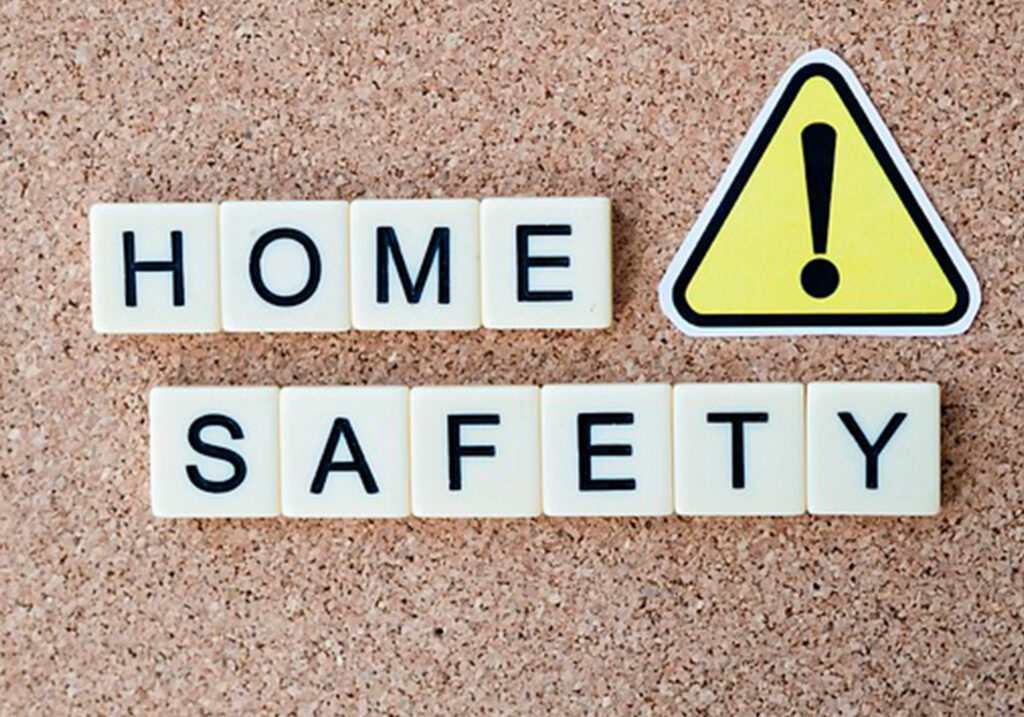We usually overlook the garage when it comes to safety. This is unfortunate because it is where we park our cars-vehicles come in and out. It is also where we store a lot of tools and machinery. These versatile areas can harbor significant electrical hazards, many of which go unnoticed until they cause accidents or damage.
Garages are multifunctional spaces, serving as storage areas, workshops, or even additional living spaces. Identifying and addressing these hidden risks is crucial for maintaining safety in your garage and home.
Here let us explore the concealed electrical dangers lurking in garages and provide practical tips for preventing potential disasters.
1. Faulty or Outdated Wiring
One of the most common hidden hazards in garages is faulty or outdated wiring. Many garages, especially in older homes, were not designed to handle modern electrical loads. Over the years, wiring may degrade, insulation may crack, and connections may loosen, increasing the risk of electrical fires or shocks.
Outdated wiring systems often lack the capacity to support high-powered tools, appliances, or charging stations for electric vehicles. Overloading these circuits can cause overheating, sparking, or even fires. Additionally, improperly installed wiring, such as DIY jobs without adherence to electrical codes, can be particularly hazardous.
To address these risks, have a licensed electrician inspect your garage’s electrical system. Upgrade wiring to meet current electrical standards, especially if you use heavy-duty equipment. Consider adding a dedicated circuit for high-powered tools to distribute the electrical load evenly.
2. Overloaded Circuits
Overloaded circuits occur when too many devices or appliances draw power from a single circuit, exceeding its capacity. This issue is especially prevalent in garages, where multiple tools, appliances, and lighting fixtures are often used simultaneously.
The consequences of overloaded circuits include tripped breakers, overheated wiring, and even electrical fires. Warning signs include flickering lights, buzzing outlets, or warm electrical panels. Ignoring these symptoms can lead to significant damage and increased repair costs.
To prevent circuit overloading, assess your garage’s electrical needs and allocate devices to different circuits. Installing additional outlets or upgrading your circuit breaker panel can help distribute the electrical load. Always ensure that power tools and appliances are plugged into appropriately rated outlets.
3. Inadequate Grounding
Proper grounding is essential for electrical safety. Grounding provides a safe path for electrical currents to follow in case of a fault, reducing the risk of electric shock or fire. Many garages, especially older ones, lack adequate grounding systems, leaving you vulnerable to electrical hazards.
Without proper grounding, tools and appliances can become energized, posing a risk to anyone who touches them. Additionally, inadequate grounding can damage sensitive electronic equipment, such as chargers for power tools or electric vehicles.
Hire a qualified electrician to evaluate your garage’s grounding system. Ensure that all outlets are grounded and equipped with Ground Fault Circuit Interrupters (GFCIs). GFCIs are especially critical in garages, where moisture and metal surfaces increase the likelihood of ground faults.
4. Moisture and Water Intrusion
Garages are often exposed to moisture, whether from rain, snow, or humidity. Water and electricity are a dangerous combination, as moisture can corrode wiring, damage insulation, and increase the risk of short circuits and electrical shocks.
Water intrusion can occur through gaps in doors, windows, or the garage floor. Pools of water near outlets or extension cords create an immediate hazard. Furthermore, condensation can form on electrical components, leading to long-term deterioration.
To mitigate these risks, seal any gaps or cracks that allow water into your garage. Use weatherproof outlets and enclosures for electrical systems exposed to moisture. Installing a dehumidifier can also help reduce overall humidity levels.
5. Improper Use of Extension Cords
Extension cords are convenient for temporary power needs, but their improper use in garages can lead to serious safety issues. Overloading extension cords or using them as permanent solutions increases the risk of overheating and fires. Additionally, running cords under rugs, doors, or through walls can damage their insulation.
Heavy-duty tools and appliances often require specific amperage ratings, and using an undersized extension cord can result in insufficient power supply, overheating, and eventual failure. Frayed or damaged cords further increase the risk of electrical shock or fire.
Instead of relying on extension cords, install additional outlets in your garage to accommodate your needs. If you must use an extension cord, choose one rated for the equipment you’re powering and inspect it regularly for signs of wear or damage.
6. Improperly Installed Lighting Fixtures
Lighting fixtures in garages are often installed without considering electrical safety. DIY installations, incorrect wiring, or using fixtures not rated for the environment can lead to overheating, flickering, or fire hazards.
Garages often require durable and moisture-resistant lighting due to exposure to temperature fluctuations and humidity. Using the wrong type of bulb or fixture can cause overheating or reduced lifespan of the lighting system.
When installing or upgrading garage lighting, choose fixtures designed for garage environments. Ensure proper installation and secure wiring connections. LED lights are an excellent choice for energy efficiency and reduced heat output.
7. Hidden Rodent Damage
Rodents are common in garages and can cause significant electrical hazards by chewing through wires. Exposed wiring not only increases the risk of electrical shorts and fires but also creates a safety hazard for anyone using the garage.
Signs of rodent activity include chewed insulation, droppings, or nests near wiring. Rodents are particularly drawn to garages with accessible food sources, warmth, or shelter.
To address this issue, inspect your garage for signs of rodent damage and repair any compromised wiring immediately. Seal entry points to prevent rodent access and consider using rodent deterrents or traps.
8. Neglected Electrical Panels
Electrical panels are the heart of your home’s electrical system, and garages often house these panels. Neglecting their maintenance can lead to tripped breakers, faulty circuits, or even fires. Dust, debris, and moisture can accumulate in the panel, exacerbating these risks.
Outdated panels may also lack the capacity to handle modern electrical demands. If your garage’s electrical panel is frequently tripping breakers, it may be time for an upgrade.
Keep your electrical panel clean and dry, and schedule regular inspections by a licensed electrician. Upgrading to a modern panel with sufficient capacity can improve safety and prevent outages.
9. Improperly Stored Flammable Materials
Flammable materials such as gasoline, paint, and cleaning solvents are commonly stored in garages. While not directly an electrical hazard, these materials can ignite if exposed to sparks or heat from electrical equipment.
Improper storage, such as keeping flammable liquids near outlets or electrical panels, increases the risk of fires. Even small sparks from faulty wiring or overloaded circuits can lead to catastrophic consequences.
Store flammable materials in approved containers and away from electrical systems. Keep the storage area well-ventilated to prevent the buildup of flammable fumes.
10. Overheating Appliances and Tools
Garages often house appliances such as refrigerators, freezers, or space heaters, which can overheat if not properly maintained or ventilated. Overheating appliances can damage wiring, trip breakers, or even start fires.
Similarly, power tools left running or improperly stored can generate heat and pose a fire risk. Overloading these tools by connecting them to undersized circuits further exacerbates the problem.
Ensure appliances and tools are in good working condition and placed in well-ventilated areas. Avoid running them for extended periods without supervision, and unplug devices when not in use.
11. Lack of Fire Safety Measures
Many garages lack basic fire safety measures, such as fire extinguishers or smoke detectors. Without these precautions, small electrical fires can quickly escalate, causing extensive damage or endangering lives.
Smoke detectors specifically designed for garages can detect fires early and provide critical warnings. Fire extinguishers rated for electrical fires (Class C) are essential for addressing electrical hazards before they spread.
Equip your garage with smoke detectors and fire extinguishers in easily accessible locations. Regularly test smoke detectors and replace their batteries as needed. Train household members on how to use fire extinguishers effectively.
12. Electric Vehicle Charging Stations
With the growing popularity of electric vehicles (EVs), more garages are equipped with charging stations. Improper installation or overloading of these stations can create hidden electrical hazards. Using incorrect wiring or failing to follow manufacturer guidelines can result in overheating or even electrical fires.
EV chargers draw significant power, and outdated wiring or inadequate circuits may not handle the load. Additionally, damaged cables or connectors can pose shock risks.
When installing an EV charging station, hire a licensed electrician to ensure compliance with local electrical codes. Use dedicated circuits for the charger and follow all manufacturer recommendations.
Conclusion
Your garage is more than just a storage or workspace—it’s a critical area where electrical safety should never be overlooked. Hidden electrical hazards such as faulty wiring, overloaded circuits, and moisture exposure can pose significant risks if left unaddressed. By identifying these dangers and implementing preventive measures, you can create a safer environment for your family, tools, and property.
Regular inspections, professional installations, and proper maintenance are key to mitigating hidden electrical hazards. Whether you’re upgrading your garage or maintaining its current setup, prioritizing electrical safety will protect your investment and provide peace of mind.

